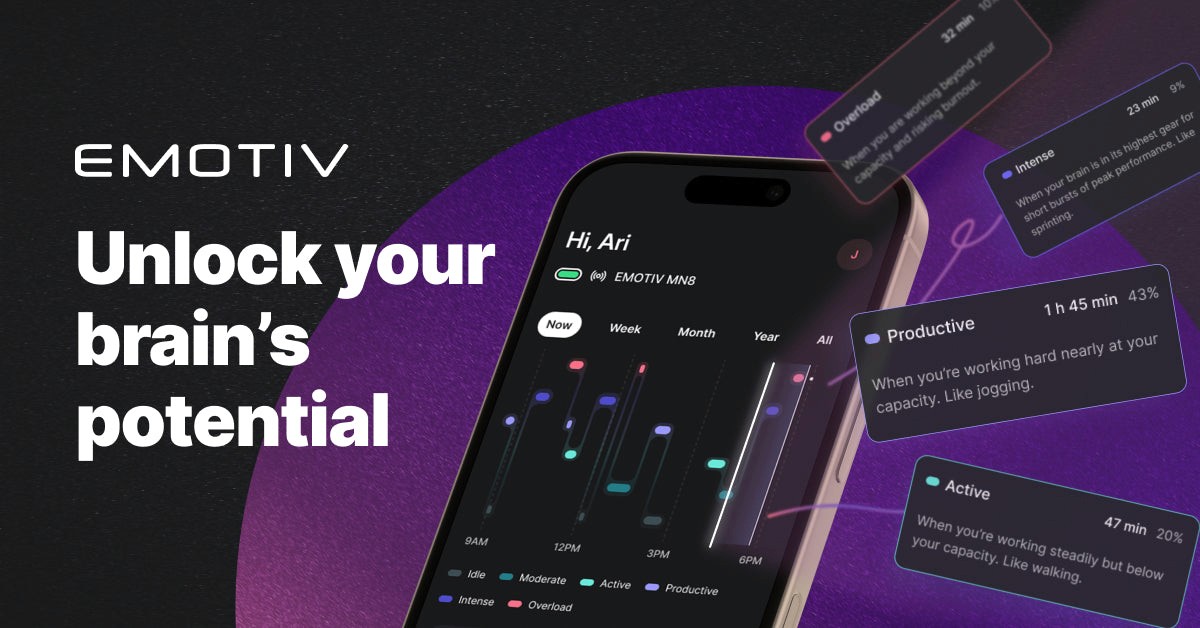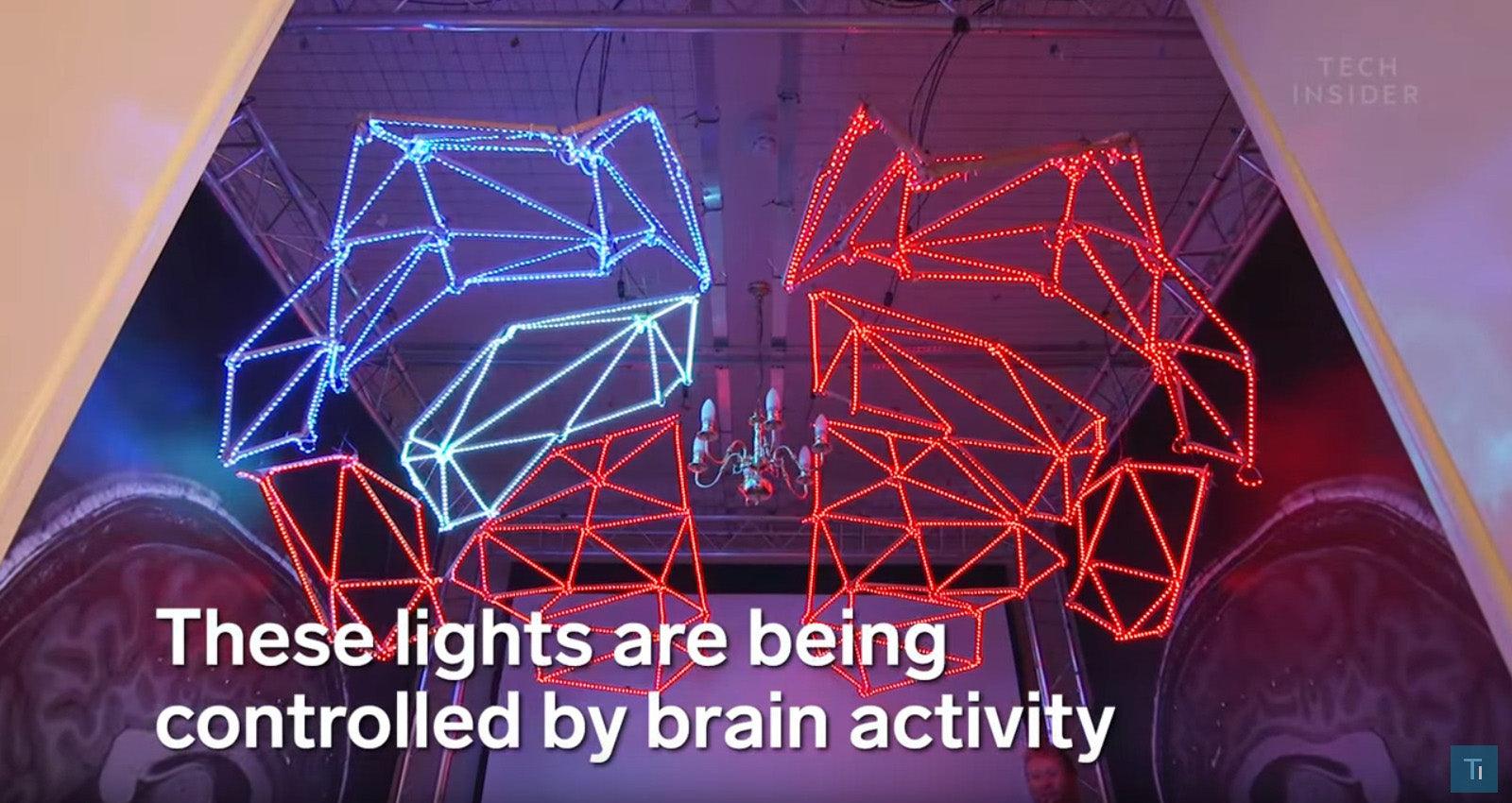Fast Company: This Life-Changing Philips Hue Hack Makes The Internet Of Everything Mean Something
Share:





New technology from Philips and Accenture lets ALS patients control home electronics using a brainwave-reading headband.
There’s a lot of talk these days about the Internet of things and connected devices: A computerized world where our refrigerators, thermostats, gym equipment, house lights, and cars are all connected to the Internet and aggregating information in real time. Although a lot of innovations in the area are admittedly overhyped, some new projects are showing an unintended benefit for the Internet of things: Connected devices could dramatically improve quality of life for the severely disabled.
On Tuesday, Accenture and Philips unveiled a prototype, proof-of-concept headset-and-software combo that lets patients with amyotrophic lateral sclerosis (ALS), also known as Lou Gehrig’s disease, turn lights on and off with their brain waves. The technology uses a brainwave-reading headband called the Emotiv Insight, which is not manufactured by Philips nor Accenture, to trigger power switches by having the user think about them. Philips stresses that the proof-of-concept is not currently on market, and is not undergoing testing as a medical device. Emotiv’s headband then interfaces with Philips’ Hue line of smart lights and other connected devices from the company.
New technology from Philips and Accenture lets ALS patients control home electronics using a brainwave-reading headband.
There’s a lot of talk these days about the Internet of things and connected devices: A computerized world where our refrigerators, thermostats, gym equipment, house lights, and cars are all connected to the Internet and aggregating information in real time. Although a lot of innovations in the area are admittedly overhyped, some new projects are showing an unintended benefit for the Internet of things: Connected devices could dramatically improve quality of life for the severely disabled.
On Tuesday, Accenture and Philips unveiled a prototype, proof-of-concept headset-and-software combo that lets patients with amyotrophic lateral sclerosis (ALS), also known as Lou Gehrig’s disease, turn lights on and off with their brain waves. The technology uses a brainwave-reading headband called the Emotiv Insight, which is not manufactured by Philips nor Accenture, to trigger power switches by having the user think about them. Philips stresses that the proof-of-concept is not currently on market, and is not undergoing testing as a medical device. Emotiv’s headband then interfaces with Philips’ Hue line of smart lights and other connected devices from the company.
New technology from Philips and Accenture lets ALS patients control home electronics using a brainwave-reading headband.
There’s a lot of talk these days about the Internet of things and connected devices: A computerized world where our refrigerators, thermostats, gym equipment, house lights, and cars are all connected to the Internet and aggregating information in real time. Although a lot of innovations in the area are admittedly overhyped, some new projects are showing an unintended benefit for the Internet of things: Connected devices could dramatically improve quality of life for the severely disabled.
On Tuesday, Accenture and Philips unveiled a prototype, proof-of-concept headset-and-software combo that lets patients with amyotrophic lateral sclerosis (ALS), also known as Lou Gehrig’s disease, turn lights on and off with their brain waves. The technology uses a brainwave-reading headband called the Emotiv Insight, which is not manufactured by Philips nor Accenture, to trigger power switches by having the user think about them. Philips stresses that the proof-of-concept is not currently on market, and is not undergoing testing as a medical device. Emotiv’s headband then interfaces with Philips’ Hue line of smart lights and other connected devices from the company.
Solutions
Support
Company

© 2025 EMOTIV, All rights reserved.

Your Privacy Choices (Cookie Settings)
*Disclaimer – EMOTIV products are intended to be used for research applications and personal use only. Our products are not sold as Medical Devices as defined in EU directive 93/42/EEC. Our
products are not designed or intended to be used for diagnosis or treatment of disease.
Solutions
Support
Company

© 2025 EMOTIV, All rights reserved.

Your Privacy Choices (Cookie Settings)
*Disclaimer – EMOTIV products are intended to be used for research applications and personal use only. Our products are not sold as Medical Devices as defined in EU directive 93/42/EEC. Our
products are not designed or intended to be used for diagnosis or treatment of disease.
Solutions
Support
Company

© 2025 EMOTIV, All rights reserved.

Your Privacy Choices (Cookie Settings)
*Disclaimer – EMOTIV products are intended to be used for research applications and personal use only. Our products are not sold as Medical Devices as defined in EU directive 93/42/EEC. Our
products are not designed or intended to be used for diagnosis or treatment of disease.
